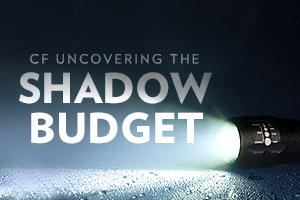Media

The Numbers behind the Shadow Budget
Yesterday, a group of House Republicans unveiled a proposal to balance the state budget without borrowing or major tax increases.
The crux of the plan relies on the use of $1.3 billion in excess funds from the “shadow budget” to help reduce last year's budget deficit. As we've pointed out, the current deficit is the product of overspending by approximately $1.6 billion. This includes Gov. Wolf's decision to spend $400 million more than the amount originally appropriated by the General Assembly.
To cover the state's bills, lawmakers reviewed spending in the shadow budget's 150+ state funds. Each of these funds have their own checking and savings accounts. Together, these accounts have nearly $10 billion in reserves today—money taxpayers have already paid to the state. The House Republican plan would use excess reserves in 41 of these funds to chip away at the state's $2.2 billion deficit.
To illustrate, lets take a look at two of the larger funds on this list: the Public Transportation Trust Fund and the Multimodal Transportation Fund.
Per the Governor's Executive Budget, the Public Transportation Trust Fund will receive $1.343 billion (from sales taxes, turnpike payments, Lottery Fund transfers, motor vehicle fees and code fines, and transfers from the Public Transportation Assistance Fund) and distribute $1.349 billion during 2017-18. As the chart below shows, the Public Transportation Trust Fund had $478 million in reserves as of July 1, up from $212 million in July of 2014.
The Multimodal Transportation Fund will receive $144 million (from turnpike payments, motor vehicle fees, and gasoline taxes) and distribute $144 million. As the same chart below shows, the Multimodal Transportation Fund has $189 million in reserves—much more than it distributes.
Indeed, a review of the Treasurer's Transparency Portal finds no significant reduction in either fund balance at any point during the past three fiscal years. That is to say, these reserve funds have not been needed to pay bills related to mass transit.
Acknowledging the need to protect working people from tax hikes and the consequences of borrowing, lawmakers have decided to dip into these funds and maximize the use of available tax dollars.